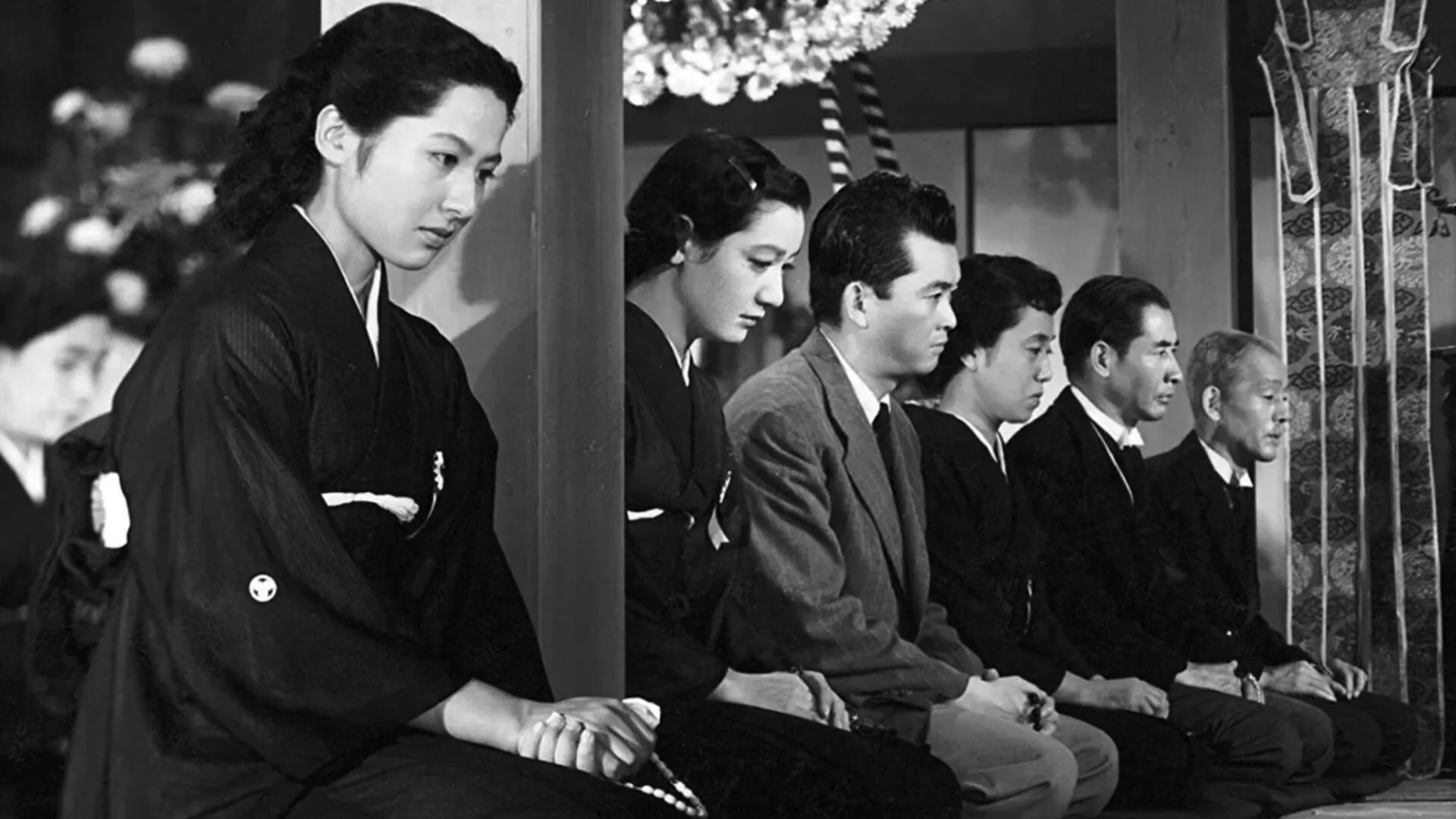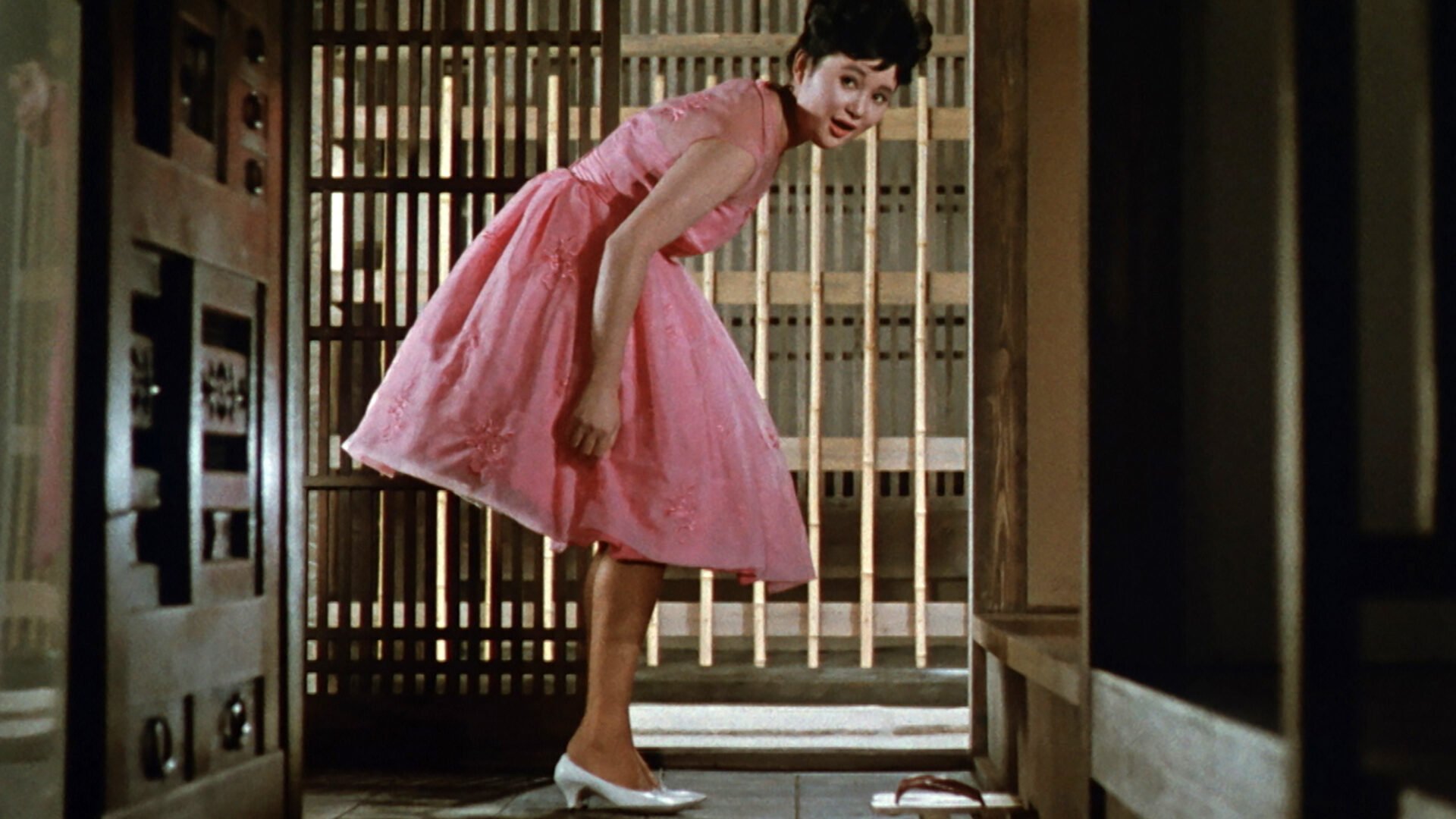The Cinematheque launches ode to Ozu with masterworks from Tokyo Story to End of Summer
Persistent smiles and anguish; geometric interiors and painstaking compositions in Japanese director’s well- and lesser-known films
Tokyo Story.
Yasujirō Ozu.
The Cinematheque presents Ozu 121 to January 6
IN ITS PROGRAM for December, The Cinematheque offers something of a mea culpa in advance of its latest return to the work of Yasujirō Ozu. The rep theatre skipped on last year’s global 120th-year celebration of the great filmmaker’s birth (and the 60th anniversary of his death), but, in lieu of that, it also closes 2024 with an appeal to view Ozu with new eyes. As explained in the program, this is the same year that finally saw, 40 years after it was published, the English translation of Hasumi Shiguéhiko’s Directed by Yasujirō Ozu, which overturns conventional Western thinking on the subject and its critical focus on minimalism and austerity. Shiguéhiko returns to what is contained inside the frame, arguing, per The Cinematheque, that “it is excess, not absence, that defines Ozu”.
The West has been on a dogged course of self-criticism in recent years, and it’s a uniquely pregnant moment to charge that we’ve perhaps misunderstood “the most Japanese of filmmakers”. In any case, it’s an intellectual challenge we can choose or not choose to take, while any occasion to screen these 10 films, inside a series called Ozu 121, is a good one. Naturally, there are three nights given to his most well-known and arguably greatest film. Receiving its first screening on Sunday, Tokyo Story retains a near mystical power to move the viewer with its glancing tale of two elderly parents visiting their adult children in the big city. Alas, what they encounter is a world “too busy” to receive them.
The filmmaker’s visual idiosyncrasies are all there—the static camera, the seductive geometry of its interiors, the painstaking compositions, the polite intercutting between characters. Most indelible, though, is the persistent smile upholding social convention, especially as worn by Ozu regular Chishū Ryū as the father, Shūkichi. It hovers over dialogue loaded with anguish, disappointment, and self-deception. In a devastating moment when Shūkichi and wife Tomi find themselves scrambling for a place to stay, intent on not burdening their own offspring, he jokes that “we’re finally homeless”. They chuckle, but we bawl.
End of Summer.
Ozu 121 is concerned with the director’s post-war period and offers a handful of offbeat and “non-canon” works like 1948’s brutal melodrama A Hen in the Wind, in which a woman turns to prostitution while she waits for her husband’s demobilization. The film is declared by Shiguéhiko as “one of the most important films in Ozu’s entire body of work” but it was initially met with consternation by Western critics and viewers. Revisiting his first ever essay on Ozu for Film Comment, Jonathan Rosenbaum now concedes: “I’ve subsequently come to value Hen in the Wind much more than I did in 1972, above all as an expression of Japanese humiliation after the end of the war and during the American occupation.”
Closer to the core is Ozu’s penultimate feature, 1961’s The End of Summer, which is distinguished as the only film he ever made for Toho studios but is otherwise a precious example of the filmmaker’s delicate weave of humour and pathos. Shot in colour and coming to The Cinematheque in 35mm, The End of Summer concerns itself with the various romantic pursuits of a family headed by the incorrigible patriarch, Manbei, who has lately taken to secretly calling on an old flame—even if it means leaving his grandson in a solo game of hide and seek while he sneaks off for another illicit visit. Typically, the surface is barely a tremor and the subterranean emotions enormous. In one of the final, modest, pristine images Ozu would commit to film, we see a tall crematorium chimney belching smoke. A family watches. It’s as if a soul’s departure has been rendered visible, and it’s moving beyond words. ![]()


























